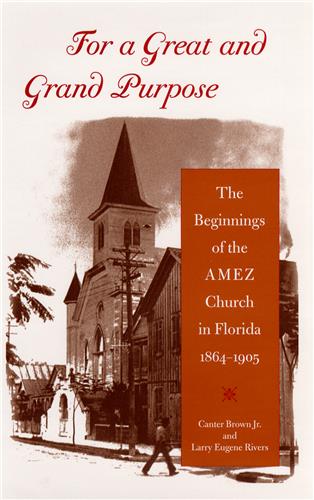From Garvey to Marley
Rastafari Theology
Noel Leo Erskine
Foreword by Stephen W. Angell and Anthony Pinn, Series EditorsPaper: $24.95
"A very refreshing and comprehensive perspective on the Rastafari movement . . . well written and [an] engaging read."--Journal of Latin American Anthropology
"No other book surpasses Erskine's skill in demonstrating how the Rastafarians gradually grew from a small band of social outcasts to a world-renowned movement that presently symbolizes Jamaica's cultural values in much of its global publicity."--Peter Paris, Princeton Theological Seminary
"Brings theological reflection to Rastafarian religion in an intriguing and creative manner. A religion that has often been misunderstood is mainstreamed and taken seriously by a Jamaican-born theologian who takes both culture and history seriously."--Linda E. Thomas, Lutheran School of Theology at Chicago
This history of the theology and rituals of Rastafarianism features accents of the reggae rhythms of Bob Marley and the teachings and philosophy of Marcus Garvey, the black nationalist who motivated many of his fellow Jamaicans to embrace their African ancestral roots. Written by a trained theologian who was raised in the Jamaican village in which the Rastafarian faith originated, the book offers both a serious inquiry into the movement and the perspective of an insider in conversation with elders of the faith who still live in the village.
Marley, who died in 1981, is the best known and one of the most articulate exponents of the themes of race consciousness that provide the core of Rasta hermeneutics. The poet and musician also made the faith appealing to the Jamaican middle class, which had turned away from the "Back to Africa" message that Garvey delivered in the 1930s.
Noel Leo Erskine isolates and defines the main tenets of Rastafarianism, which emerged toward the end of the 20th century as a way of life and as a new international religion. He includes biographical descriptions of the key players in the development of Rastafari theology, provides details of its organization and ethos, and discusses the role of women in the religion. He also discusses the significance of Ethiopia to the faith; practitioners view that country both as their homeland and as heaven on earth. Examining the religion's relationship to Christianity, Erskine relates the Rastas to 19th-century Native Baptist and Revivalist traditions on the island and to the black theology movement in the United States. The Rastas see the European and North American churches as representatives of an oppressive colonial class, he writes. The Rastafarian name for God--"Jah"--is derived from Yahveh, the God of the Hebrews, and members of the faith connect their struggle for dignity and solidarity in Jamaican society with the struggle of the oppressed Israelites. "Jah" and not the Bible is the decisive source of morality and truth for the Rastas.
Clearly written, sympathetic, and at times critical, the book will be important in the fields of African, African American, and Caribbean studies, especially to the cultural and religious dimensions in each discipline.
Noel Leo Erskine is associate professor of theology and ethics at the Candler School of Theology.
No Sample Chapter Available
"Recommended."
--Choice
"An excellent study of the social origins and significance of the Rastafarian religion in Jamaica."
"A rich and very informative study of the Rastafarian religion. I recommend it to readers with a broad interest in religion and also readers who are interested in this particular one."
--Journal of the American Academy of Religion
…point[s] out the degree to which Rastafari has given Jamaica a transformative religious practice and bring[s] Christianity into contact with that practice.
--New West Indian Guide
…Erskine has written a Rastafarian theology and grounded it in the historical, social, and cultural ethos of Jamaica.
--Journal of Church and State
…a deeply appealing study that never veers far from its author's personal and biographical connection to his subject…an introduction to nonspecialists, as well as some food for thought for Erskine's colleagues in theological studies…
--The Journal of African American History
"A welcome addition to a growing body of literature know as Rastafarian Studies."
--New West Indian Guide












